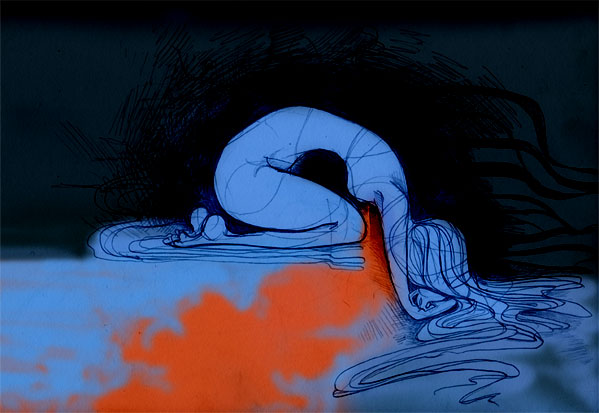The year was 2011 and I was an undergraduate student at Weber State University in Ogden, Utah. I was on the premed track and looking for doctors to shadow and research to participate in. I was also working part time at a physical therapy clinic and one day I started a conversation with one of the patients. After hearing a little about my interests and career goals, she became enthusiastic about introducing me to her doctor who was conducting research on chronic fatigue syndrome. I had never heard of the syndrome, but I was eager to take on any new medical experience and jumped at the opportunity. One week later I found myself at the clinic of Dr. Lucinda Bateman in Salt Lake City.
After meeting with Dr. Bateman and discussing chronic fatigue syndrome, I followed her throughout her day and sat in on several appointments. Because chronic fatigue syndrome is a relatively unknown condition, Dr. Bateman and her patients were strong advocates of educating as many people as possible about the condition, including me.
Many of the patients shared their stories with me. One woman I remember vividly: she was quite thin with short cropped hair and wore a smart business suit and trendy glasses. The immediate impression I had when I saw her was that she was someone who got things done. Her story was heartbreaking. I listened as she described her life before chronic fatigue syndrome and how she was a “go, go, go” person. She worked full time, ran long distance races, and was active in every sense of the word. Then, one day, she could not get out of bed. Her muscles ached intensely despite the fact that she had not exercised the day before. She was debilitated by an intense fatigue she could not overcome. These symptoms lasted for days before she scheduled an appointment with her primary care doctor. All the tests came back negative and she was prescribed bed rest, which did not resolve any of the fatigue or pain.
I could tell as she was recounting her story that she was trying not to become emotional. She was still experiencing the fatigue and recalling the activities she used to enjoy was difficult for her. I felt I could begin to understand some of what she was going through, because I could remember how cripplingly fatigued I had been when I had contracted infectious mononucleosis as a teenager. I could not imagine having to deal with that kind of fatigue for months or years on end.
After shadowing Dr. Bateman, I went on to finish my undergraduate degree and was accepted into medical school. I heard nothing of chronic fatigue syndrome for years. In February, 2015 I was surprised to see that NPR had published an article on the syndrome. The article was written to cover a new report published by the Institute of Medicine. The report legitimizes chronic fatigue syndrome (known as myalgic encephalomyelitis in Europe), establishes new diagnostic criteria , encourages more research into pathophysiology and treatment, and recommends that the name of the disease be changed to Systemic Exertion Intolerance Disease (SEID).
According to the report, “between 836,000 and 2.5 million Americans suffer from myalgic encephalitis/chronic fatigue syndrome,” and the hallmark of the disease is “a substantial reduction or impairment in the ability to engage in pre-illness levels of occupational, educational, social, or personal activities, that persists for more than 6 months and is accompanied by fatigue, which is often profound, is of new or definite onset (not lifelong), is not the result of ongoing excessive exertion, and is not substantially alleviated by rest.”
As we go through medical school and enter practice, I think it is a good idea to be on the lookout for these patients. I highly recommend reading the report for educational purposes, especially since, according to the report, less than one-third of medical schools educate their students about chronic fatigue syndrome and fewer than half of medical texts mention it. The disease is poorly understood, but increased awareness and future research may help fill in our knowledge gaps and assist in finding effective treatments for those who suffer from chronic fatigue syndrome.
Read the NPR article: “Panel Says Chronic Fatigue Syndrome Is A Disease, And Renames It”
Featured Image:
cfs by Jem Yoshioka

